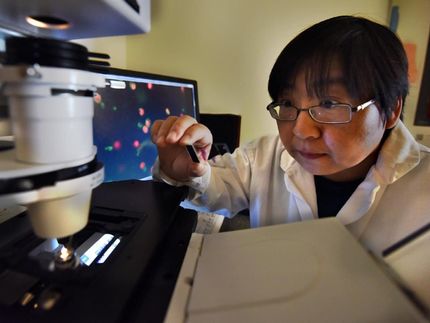Allon receives Michael J. Fox Foundation grant for Parkinson’s disease research
Advertisement
Allon Therapeutics Inc. announced it has received a major grant from the Michael J. Fox Foundation (MJFF) for Parkinson’s Research to conduct pre-clinical research that will help determine the potential of the Company’s lead neuroprotective drug, davunetide, as a treatment for Parkinson’s disease (PD).
The newly funded research project will focus on the impact of davunetide on a key pathology in PD, namely alpha-synuclein. In collaboration with Prof. Marie-Françoise Chesselet of the University of California, Los Angeles (UCLA), the Charles Markham Professor of Neurology and Chairman of the Department of Neurobiology, a mouse model of PD will be administered various intranasal doses of davunetide and the impact on brain pathology and improvement in motor function will be measured. A previous preclinical project, also sponsored by MJFF, found that davunetide had a positive effect in both in vitro and in vivo models of PD. This grant will total $625,000.
“Because davunetide is already in clinical trials for progressive supranuclear palsy, a rare progressive movement disorder, the potential exists to rapidly bridge to a clinical trial in PD,” said Todd Sherer, PhD, Chief Program Officer, The Michael J. Fox Foundation. “Our Foundation is dedicated to supporting groups like Allon who have promising PD therapies in development with a clear path forward toward practical relevance in patients’ lives.”
Additional collaborators on the project include Dr. Sheila Fleming, Assistant Professor, Departments of Psychology and Neurology at the University of Cincinnati, and Prof. Illana Gozes, a discoverer of davunetide, who is Professor of Clinical Biochemistry and The Lily and Avraham Gildor Chair for the Investigation of Growth Factors at Tel Aviv University.
This MJFF funding initiative is focused on developing treatments that target alpha-synuclein, a protein central to generation of Parkinson’s pathology. To this end, mice that have high levels of alpha-synuclein were chosen because they progressively develop both the motor function problems and the neuropathology seen in Parkinson’s disease, including a 40% decrease in dopamine neurotransmitter levels in the brain by 14 months of age. This serves as an excellent model system for testing of novel drug candidates like davunetide.
Allon’s current clinical development focus is a pivotal Phase 2/3 clinical trial to evaluate davunetide as a treatment for progressive supranuclear palsy (PSP), a movement disorder with tau pathology that is often misdiagnosed as PD.
























































